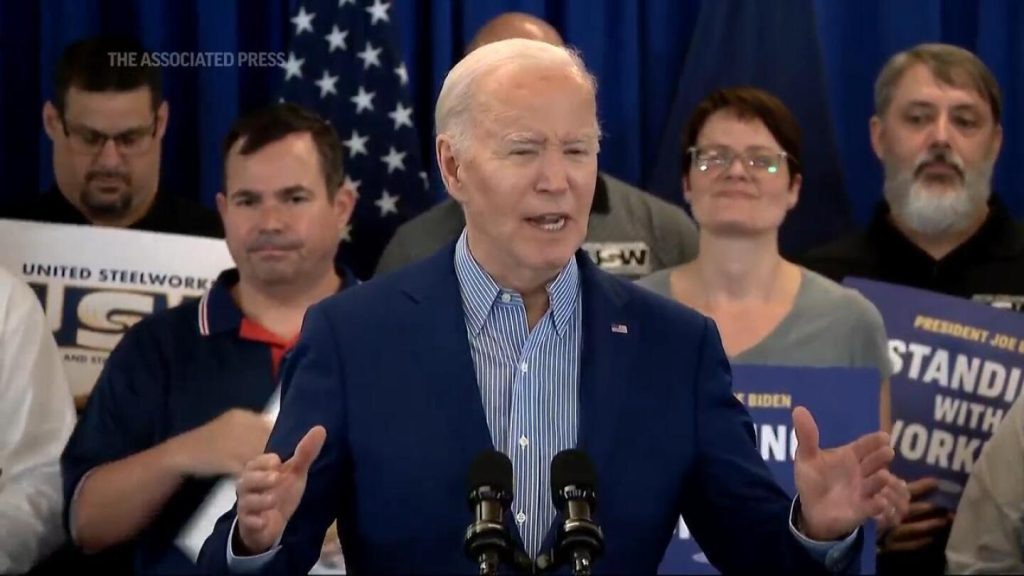President Joe Biden made a bold statement to a group of unionized steelworkers on Wednesday, announcing that his administration would intervene to block the acquisition of U.S. Steel by a Japanese company. This move comes amidst concerns about the impact of foreign ownership on the American steel industry. Additionally, Biden called for a tripling of tariffs on Chinese steel, signaling a tougher stance on trade policies with China. The president’s actions have been met with praise from the steelworkers and their supporters, who see this as a step towards protecting American jobs and businesses.
The move to block the acquisition of U.S. Steel by a Japanese company reflects Biden’s commitment to preserving American control over key industries. By preventing foreign ownership of a major steel company, the administration hopes to safeguard domestic jobs and ensure that strategic industries remain under American control. This decision is part of a broader effort to protect national security interests and promote economic resilience in the face of global competition. The tripling of tariffs on Chinese steel further reinforces the administration’s focus on strengthening domestic industries and reducing reliance on foreign imports.
The announcement by President Biden has sparked a debate on the effectiveness of protectionist trade policies in the modern global economy. While some applaud the administration’s efforts to prioritize American interests and protect domestic industries, others raise concerns about the potential impact on international trade relations. Critics argue that higher tariffs and restrictions on foreign investment could lead to retaliation from other countries and disrupt global supply chains. However, supporters of the president’s actions contend that they are necessary to address unfair trade practices and level the playing field for American businesses.
The steelworkers and their union leaders have welcomed President Biden’s decision to block the acquisition of U.S. Steel by a Japanese company. They see this as a positive step towards safeguarding American jobs and preventing foreign control over a critical industry. The tripling of tariffs on Chinese steel is also viewed favorably by the steelworkers, who believe that it will help protect their livelihoods and ensure a level playing field for domestic producers. Overall, the administration’s actions have garnered strong support from the steelworkers and their allies in the labor movement.
The broader implications of President Biden’s trade policies are being closely watched by industry experts and policymakers. The decision to block the acquisition of U.S. Steel by a Japanese company could set a precedent for future interventions to protect American companies from foreign takeovers. Additionally, the increased tariffs on Chinese steel signal a shift towards a more protectionist trade stance, which could have ripple effects on global markets. It remains to be seen how these policies will impact the overall economy and international trade relations in the long term.
As President Biden continues to prioritize American interests in trade negotiations, the steel industry and other key sectors are likely to experience significant changes. The administration’s efforts to protect domestic industries and strengthen national security have the potential to reshape the economic landscape and redefine the country’s approach to international trade. While the impact of these policies remains uncertain, they signify a new direction in U.S. trade relations and a renewed focus on promoting American competitiveness in the global marketplace.


